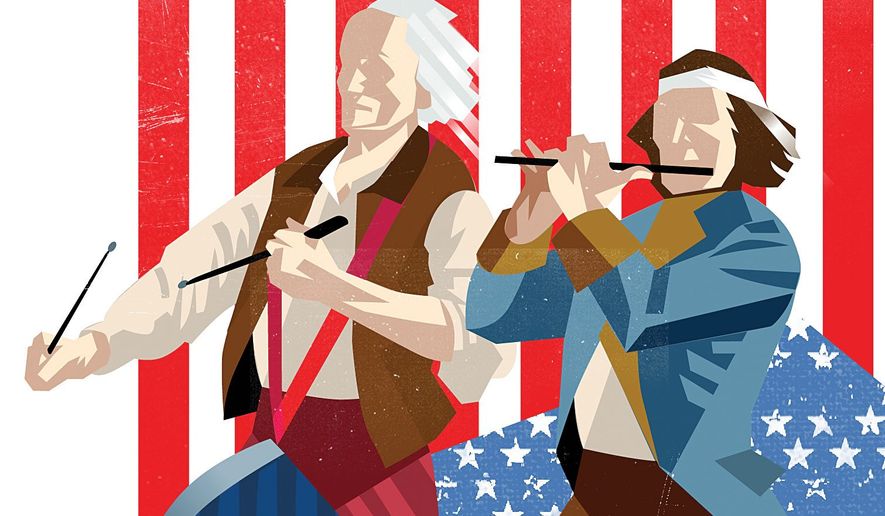OPINION:
As Americans prepare to celebrate the nation’s 240th birthday, it might be well to recall how other generations observed the holiday. To be sure, the Founding Fathers were too close to the event to provide predictions, except, of course, for John Adams, whose heart and pen were inseparable. The nation’s birthday, he wrote to wife Abigail in July 1776, “ought to be solemnized with pomp, shews, games, sports, guns, bells, bonfires and illuminations, from one end of the continent to the other, from this time forward forever.”
For 19th-century Americans, Independence Day was all that Adams had envisioned. It was also a day of fervid speechmaking. One analyst noted that the Fourth of July speech “was, as a rule, not of high type, but it was distinctly national. Under its classification were comprised many different styles, from the able and dignified oration of such an orator as John Quincy Adams to the frothy mouthings of some village ranter.”
To contemporary Americans, the importance of the Independence Day speeches is the insight they provide about a growing, democratic nation. As early as 1793, for example, one speaker saw the American Revolution as the first step toward infusion of its principles throughout mankind: “The passions which have hitherto made the misery of mankind will be disarmed of all their violence and give way to the soft control of mild and amiable sentiments.”
After the Civil War in 1869, a July 4 address reflected the view that war among brothers added a new dimension to the responsibilities that the generation of veterans faced: “Though young in years, we should remember that henceforth, and as long as we live in this land, we are the ancients — the veterans of the Republic. As such, it is for us to protect in peace what we preserved in war — it is for us to look at all things with a view to the common country and not to the exigencies of party politics .”
And by the end of the century, in 1884, orators on the nation’s birthday observed that freedom is “safe in America just so long as the men of this land know the worth of their inheritance and maintain the principles by which it has been secured.” The speakers were also perceptive in recognizing the dual side of liberty: “The American principle of equality is the source of astonishing energy, and also of audacious and unscrupulous greed. Our greatest virtues and our greatest vices are both fostered by liberty.”
Two of the most famous Founding Fathers, John Adams and Thomas Jefferson, were too busy in the prime of their lives to write Fourth of July speeches because they were in a bitter battle with each other in terms of their party politics. Matters were so bad that when incumbent Adams lost to Jefferson in the presidential election of 1800, he didn’t even attend Jefferson’s inauguration. But in the ebbing years of their lives, they renewed the friendship they had during the revolution through letters they wrote to each other that, in a sense, constitute orations.
Not surprisingly, what happened on July 4, 1776, was a frequent subject matter. Not surprisingly, too, their moods alternated between whether the “Life, Liberty and the Pursuit of Happiness” in the Declaration of Independence had made progress. In one pessimistic letter, for instance, Adams wrote: “Let me ask you very seriously my Friend, Where are now in 1813, the perfectibility of human Nature? Where is now, the progress of the human Mind? Where the augmentations of human comforts?”
As age began to assert its claim on the time of the correspondents, so, too, did their accounting sheet mellow on the progress of the nation in terms of its revolutionary accomplishments. Ironically, both men were rendered speechless on July 4, 1826, the 50th anniversary of the nation’s birthday, when they both passed away within a few hours of each other.
• Thomas V. DiBacco is professor emeritus at American University.




Please read our comment policy before commenting.